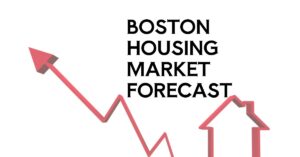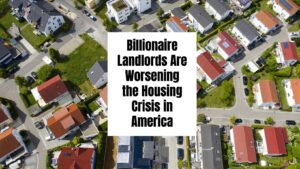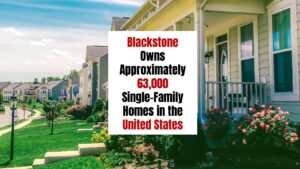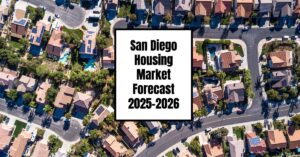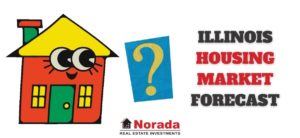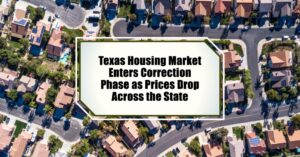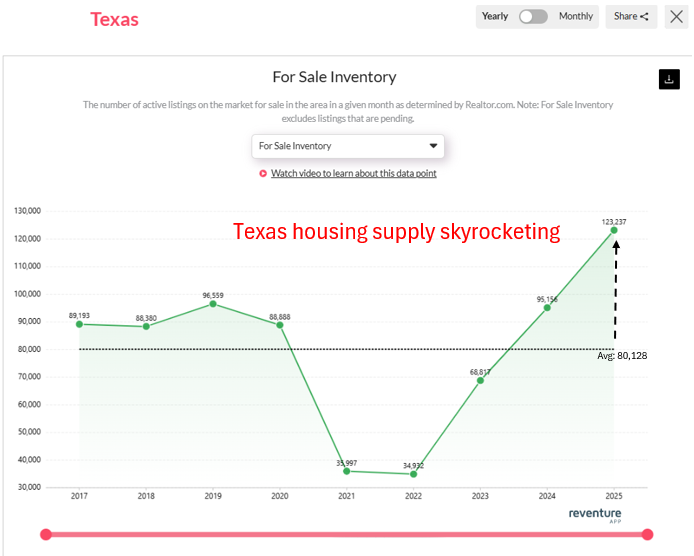The current Boston housing market trends are definitely something to talk about, especially if you're thinking about buying or selling a home in the area. Here's the deal: If you're looking at single-family homes, be prepared for some sticker shock. The median price just hit over $1 million for the first time ever! Condos, on the other hand, are holding pretty steady. Let's dive into the specifics to give you a clear picture.
Current Boston Housing Market Trends: What's Happening Right Now?
Home Sales
Okay, so let's break down what's been happening with home sales. Overall, sales are up compared to last year and the previous month. People are still buying, even with those high prices!
- Single-Family Homes: According to the Greater Boston Association of Realtors® (GBAR), in June, 1,292 homes were sold. That's a 19.6% increase from May and a 5.8% bump from June of last year.
- Condos: 986 condos found new owners, which is a 2.8% rise from May and a 1.8% increase from June 2024.
So, what does this tell us? People are still interested in buying, but perhaps with varying preferences for property types.
Home Prices
This is where things get interesting, especially for single-family homes. Buckle up!
- Single-Family Homes: The median price hit $1,003,250. That's a 2.4% increase from May's $980,000 and a 4.5% jump from last June's $960,000.
- Condos: The median price landed at $725,000. Interestingly, that's down 3.3% from both May and June of the previous year (which were both at $750,000).
I think we can see a distinct trend here: single-family homes are skyrocketing, while condos are being more stable. If you're thinking of buying, you should consider that.
Are Home Prices Dropping in Boston?
Not exactly, especially not for single-family homes. While some folks might hope for a price drop, the data doesn't really show that happening right now. Condo prices have experienced a small dip. According to Mark Triglione, President of the Greater Boston Association of REALTORS, folks have seen inventory rise in some markets, leading buyers to believe they may see some relief on prices, but the data and buying behavior continues to defy that notion.
Housing Supply
Supply is super important because it influences prices. When there are more homes available, buyers have more choices, and prices tend to stabilize or even go down. Let's see what's happening in Boston.
- Single-Family Homes: 1,528 new single-family homes hit the market. That's down 13.4% from May but up 8.9% from June of last year.
- Condos: 1,437 new condos became available. That's a decrease of 8.1% from May, but a pretty significant increase of 19.4% compared to last June.
The supply of single-family homes is struggling to keep pace with demand, which is likely contributing to those high prices.
Is Bostona Buyer's or Seller's Housing Market?
Generally, a “seller's market” means there are more buyers than homes available, giving sellers the upper hand. A “buyer's market” is the opposite. Based on the data, Boston is more of a seller's market for single-family homes. The demand is high, the supply is struggling to keep up, and prices are rising. Condos seem to be more balanced.
One way to tell is how long homes stay on the market:
- Single-Family Homes: The median number of days on the market is 19, up 18.8% from May and 11.8% from June 2024.
- Condos: The median number of days on the market is 23, increasing 9.5% from May and 15% from June 2024.
Market Trends
So, what are some overall trends we can see in the Boston housing market?
- High Demand for Single-Family Homes: The desire to own a single-family home in Boston is still strong, even with those high prices.
- Condo Stability: Condo prices are more stable, which could make them an attractive option for some buyers.
- Slightly Increasing Inventory: While still tight, there's been a small increase in the number of homes for sale compared to last year.
- Homes Selling Quickly: When priced right, homes are still flying off the market, especially single-family homes.
I'm seeing that location, location, location still holds true. Certain neighborhoods will always be in high demand, which keeps the pressure on prices.
Impact of High Mortgage Rates
Let's not forget about mortgage rates. They play a huge role in the housing market. Right now, the average 30-year fixed mortgage rate is around 6.72%, and the 15-year is about 5.85% (as of 07/31/2025).
These rates are high compared to recent years, which definitely impacts affordability. It means buyers have to pay more each month, even if the price of the home stays the same. Despite these high rates, the Boston housing market has remained resilient. Some economists predict these rates may fall to around 6.0% – 6.5% by the end of 2025, but who really knows?
Mortgage Rate Comparison (as of 07/31/2025)
| Mortgage Type | Interest Rate |
|---|---|
| 30-Year Fixed Rate | 6.72% |
| 15-Year Fixed Rate | 5.85% |
These rates have largely stayed in this range since mid-April, which gives borrowers some stability to work with. Continued economic growth, along with moderating home prices and rising inventory, should be a good sign for buyers and sellers alike.
In Conclusion
The current Boston housing market trends show a tale of two cities (sort of!). Single-family homes are experiencing record-high prices and high demand, while the condo market is a bit more stable. High mortgage rates are a factor, but haven't stopped the market completely. As someone who has lived in the Boston area for 20 years and watched how the market has changed, I can tell you that Boston real estate has always been competitive.
Boston Housing Market Forecast 2025-2026: Will Prices Drop?
You're probably wondering what's going to happen with home prices. So, what's the scoop on the Boston housing market forecast? According to Zillow’s latest projections, the Boston housing market isn't headed for a crash, but a slight cooling is expected. Let's dive into what these forecasts actually mean for you.
Is Boston's Housing Market Cooling Down?
The Boston-Cambridge-Newton area has seen a 2.3% increase in home values over the past year, with an average home value of $733,270. Homes are moving quickly, typically going pending in around 7 days. However, recent forecasts suggest a bit of a shift. Here's a breakdown of what analysts predict:
- July 2025: Zillow forecasts a 0.4% decrease in home values for the Boston metro area.
- September 2025: The forecast anticipates a further dip of 1.3%.
- Year-End (June 2026): Looking at a one-year projection, from June 2025 to June 2026, the prediction is a 1.6% decrease.
What Does This Mean for Homeowners and Buyers?
While these numbers might seem small, they suggest a slight softening in the market. For homeowners, it means that the rapid price growth we've seen in recent years might be slowing down. It's still a solid market, but pricing your home competitively will be crucial.
For buyers, this could be welcome news. A slight dip in prices could offer more opportunities and potentially ease some of the pressure in the market. Keep a close eye on interest rates, as they play a huge role in affordability.
Across Massachusetts: How Does Boston Compare?
Let's see how Boston's forecast stacks up against other areas in Massachusetts:
| Region | July 2025 Change | September 2025 Change | June 2026 Change |
|---|---|---|---|
| Boston, MA | -0.4% | -1.3% | -1.6% |
| Springfield, MA | -0.3% | -1.0% | -0.6% |
| Worcester, MA | -0.3% | -1.0% | 0.1% |
| Pittsfield, MA | -0.1% | -0.8% | 0.9% |
| Vineyard Haven, MA | -0.4% | -0.9% | 1.1% |
| Barnstable Town, MA | -0.3% | -0.7% | 1.4% |
As you can see, most areas in Massachusetts are expected to see at least a short term decline, but some like Barnstable Town are expected to actually see growth in the longer one year timeframe.
National Trends and Expert Opinions
Lawrence Yun, Chief Economist for the National Association of Realtors (NAR), believes things are looking up nationally. He forecasts:
- Existing home sales to rise by 6% in 2025 and 11% in 2026.
- New home sales to increase by 10% in 2025 and 5% in 2026.
- Median home prices to continue increasing modestly, with a projected rise of 3% in 2025 and 4% in 2026.
- Mortgage rates to average 6.4% in the second half of 2025 and dip to 6.1% in 2026.
A Possible Boston Housing Market Forecast for 2026 and Beyond
Based on these trends, I believe the Boston real estate market will likely stabilize after the slight dip predicted for 2025. The demand for housing in Boston remains strong due to its universities, healthcare, and job market. If mortgage rates continue to fall as predicted by experts, the market may shift once again.
Will the Boston Housing Market Crash?
No, a crash is unlikely. A slight price decrease is not the same as a collapse. Several factors support Boston's housing market: a strong local economy, limited housing supply, and continued demand. While there might be some bumps in the road, a full-blown crash is not on the horizon.
I've seen markets go up and down over the years. Based on my experience I believe taking a long-term approach to real estate ownership is the best way to think about it. Over time real estate values tend to increase, even when there are times when we wonder if it's all going to come crashing down.
Should You Invest in the Boston Real Estate Market?
Boston, a city steeped in history, academic prestige, and a booming job market, has long been a magnet for residents and investors alike. But with a reputation for high property values, is the Boston real estate market the right fit for you? Let's delve into the pros and cons to help you make an informed decision.
Pros: A Perfect Storm for Investors
- Steady Rental Demand: Fueled by a large student population, young professionals, and a growing population, Boston boasts a remarkably strong rental market. This translates to consistent income for investors, making it a great option for those seeking reliable cash flow. Boston's population grew 9.4% from 2010 to 2020, reaching 675,647 people, making it the 24th largest city in the United States. Boston's population is projected to grow to 710,000–724,000 by 2030, and 801,000 by 2050. More than a third of this growth is expected to occur in the South End, Downtown, East Boston, Dorchester, and the Seaport. This rising population, coupled with a limited supply of housing units, creates a situation where rental demand is likely to stay strong, benefitting investors.
- Appreciation Potential: Historically, Boston has seen significant property value appreciation. This trend, coupled with a limited supply of housing units, suggests that investments here have the potential for high returns in the long run.
- Rock-Solid Economy: Boston's economy has grown significantly since 2001, with the Greater Boston metro area's GDP increasing from $284.1 billion in 2001 to $504.1 billion in 2022. In 2020, per capita personal income in Metro Boston was $89,568, which is 24% higher than 2010 and 34% higher than 2000. This economic strength translates to a stable job market, which fuels rental demand and property value appreciation. With a diversified economy spanning world-renowned universities, healthcare institutions, a thriving tech sector, and a financial hub, Boston is well-positioned to weather economic downturns, minimizing risk for investors.
- Future-Proof Growth: It's important to note that while Boston's population has seen a slight decline since the 2020 census, reaching 629,842 in 2024, this is projected to be a temporary dip. Long-term projections still suggest continued population growth, fueled by the city's strong job market and attractive qualities for young professionals and families. As the city grows, the demand for housing is likely to rise, further bolstering property values and rental rates.
- Favorable Financing: Boston's robust financial sector translates to a wide range of lenders and banks competing for your business. This competition translates into favorable loan terms and rates for qualified investors. Additionally, many lenders in Boston specialize in real estate financing, and have a deep understanding of the local market. This expertise can be invaluable for investors, as lenders can provide guidance on property selection, financing options, and current market trends. Having access to a pool of lenders with experience in the Boston real estate market allows investors to shop around and secure the most competitive financing package for their investment property.
Cons: Challenges to Consider
- High Entry Point: Let's be honest, Boston isn't cheap. The high cost of living translates to a high barrier to entry for real estate investors. A sizable down payment is often required, and investors need to be prepared for potentially competitive bidding situations.
- Management Considerations: Managing a rental property can be time-consuming, especially for those unfamiliar with the process. Investors should factor in property management fees or be prepared to manage the property themselves.
- Market Fluctuations: While historically stable, no real estate market is immune to fluctuations. Investors should have a long-term outlook and be prepared to weather any potential dips in the market.
Beyond the Numbers: Finding the Right Fit
While the data paints a promising picture, there's more to consider than just market trends. Here are some additional factors to weigh:
- Investment Goals: Are you seeking steady rental income or long-term appreciation? Understanding your goals will help you choose the right property type and investment strategy.
- Risk Tolerance: Real estate, like any investment, carries inherent risks. Be honest with yourself about your comfort level with market fluctuations and potential vacancies.
- Location, Location, Location: Boston offers a diverse range of neighborhoods, each with its own unique character and market dynamics. Research different areas to find one that aligns with your investment goals and budget.
Investing in Boston Real Estate: The Final Verdict
Boston's real estate market presents a compelling opportunity for investors with a long-term perspective and a healthy risk tolerance. The strong rental market, potential for appreciation, and diversified economy make it a solid choice for those seeking a stable investment. However, the high entry cost and management considerations should be carefully evaluated before diving in.
By carefully considering your financial goals and risk tolerance, combined with thorough research into specific neighborhoods, you can make an informed decision about whether the Boston real estate market is the right fit for your investment portfolio.
Boston's Booming Neighborhoods: Top Spots for Recent Real Estate Growth
The Boston housing market continues to be a force, with property values steadily rising across the city. However, some neighborhoods have witnessed particularly impressive growth over the past five years. Let's dive into the hottest neighborhoods that have seen significant real estate appreciation (Neighborhoodscout).
- Seaport District North: This waterfront neighborhood has seen explosive growth in recent years, with new luxury condos, offices, and shops popping up all over the place. It's a great place to live if you're looking for a trendy, walkable neighborhood with stunning views of the harbor.
- Beacon Hill East: This historic neighborhood is known for its cobblestone streets, gaslit lamps, and charming brick row houses. It's a great place to live if you're looking for a quiet, upscale neighborhood with a strong sense of community.
- Leather District / Downtown Crossing: This area has undergone a major transformation in recent years, from a gritty industrial district to a trendy hub of shops, restaurants, and lofts. It's a great place to live if you're looking for a lively, central neighborhood with plenty of character.
- Shawmut East: This up-and-coming neighborhood is located just south of downtown Boston and is home to a mix of historic brownstones, new construction condos, and hip restaurants. It's a great place to live if you're looking for a vibrant, affordable neighborhood with a lot of potential.
- Seaport District: This waterfront neighborhood is home to the Boston Convention Center, the Boston Harbor Hotel, and a number of luxury condos. It's a great place to live if you're looking for a modern, amenity-rich neighborhood with stunning views of the harbor.
- Brighton East: This neighborhood is located just west of Boston and is home to a mix of students, young professionals, and families. It's a great place to live if you're looking for an affordable, diverse neighborhood with a lively bar scene.
- Boston University: This neighborhood is home to Boston University and a number of other colleges and universities. It's a great place to live if you're looking for a vibrant, youthful neighborhood with plenty of bars and restaurants.
- South End: This historic neighborhood is known for its Victorian brownstones, tree-lined streets, and diverse population. It's a great place to live if you're looking for a charming, walkable neighborhood with a strong sense of community.
- North Allston: This neighborhood is located just west of Boston and is home to a mix of students, young professionals, and families. It's a great place to live if you're looking for an affordable, diverse neighborhood with a close-knit community.
- Back Bay West / Berklee College of Music: This neighborhood is home to Berklee College of Music and a number of other arts institutions. It's a great place to live if you're looking for a vibrant, creative neighborhood with plenty of bars and restaurants.
These are just a few of the many great neighborhoods in Boston. When choosing a neighborhood to live in, it's important to consider your own needs and preferences. Think about how close you want to be to work or school, what kind of amenities are important to you, and what kind of atmosphere you're looking for.
Recommended Read:
- Massachusetts Housing Market Forecast 2025-2026: Insights for Buyers
- Massachusetts Housing Market: Trends and Forecast 2024-2025
- Massachusetts First-Time Home Buyer Grants: Your Complete Guide
- Guide to Average Down Payment on a House in Massachusetts
- Top 10 Priciest States to Buy a House by 2030: Expert Predictions
- Average House Prices by State in USA
